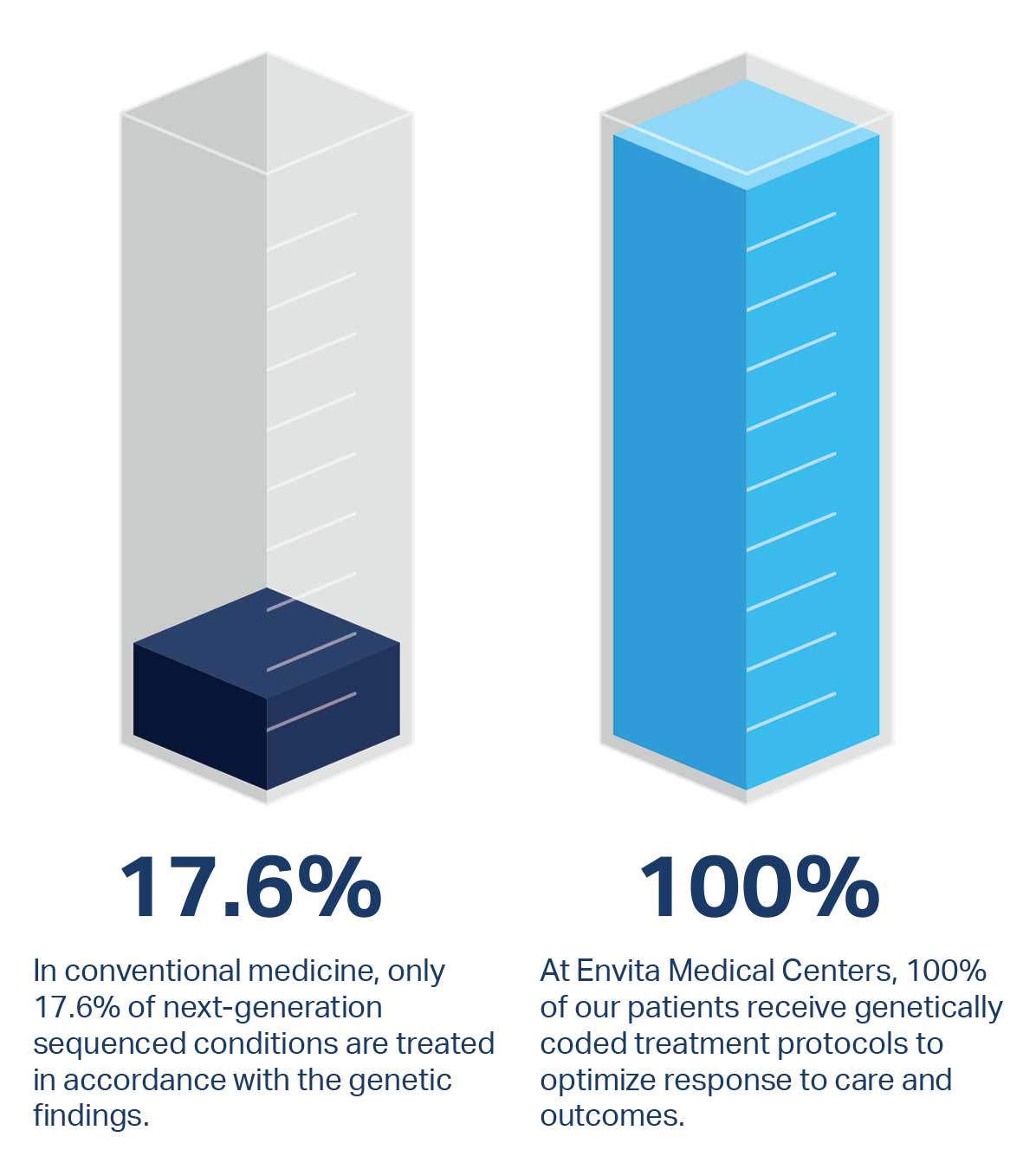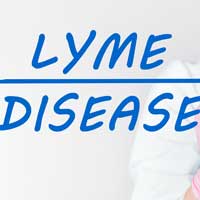Can Metabolic Therapies or Gerson Therapy Treat or Prevent Cancer?

Dietary restrictions, nutritional supplements, and detoxification are critical aspects of alternative and integrative cancer treatments, such as the Gerson therapy and other Metabolic diet therapies with low sugar approaches, but a blanket protocol is not uniformly effective for every cancer patient. Diet and exercise are important and fresh organic foods with low impact to insulin are typically considered beneficial for many cancer patients. But what we have learned over the decades is that everyone's cause for their cancer is different. These causes may be attributed to low-grade viral infections, Lyme disease, molds, pesticides, or even heavy metal exposure. Addressing these factors requires a collaboration of treatments, diet, and lifestyle changes for both prevention and the treatment of disease.
Cancer is a disease of genetic mutations that can happen for a variety of reasons, and genetic and epigenetic expressions vary from person to person. These variations highlight the need for personalized screenings to establish prevention and precision-targeted treatment options that are customized to the diet and lifestyle best suited for the patient. In fact, recent scientific evidence shows that metabolic alterations are more common among cancer subtypes and across cancers. Differences in nutrient availability may contribute to sensitivity or resistance of cancer cells to some drugs.
Personalized Alternative and Conventional Treatments
In an effort to overcome such challenges and help every patient respond optimally, Envita Medical Centers, an integrative center of excellence for personalized precision oncology, focuses on customizing treatments to include precision-diet and lifestyle plans for each individual cancer patient. “Depending on cancer type and each patient's metabolic drivers in the disease process, precision matters even in their diet, as much as it is needed in their treatments,” said Dr. Dino Prato, CEO and Founder, Envita Medical Centers and Center of Excellence.
“At Envita, we also look at metabolic drivers of inflammation, insulin, cortisol, and immune depression while personalizing each patient's treatment protocol, because food, and particularly glucose, can be one of the underlying sources of inflammation and inflammation pushes cancer signaling,” said Dr. John Oertle, lead physician, Envita Medical Centers and Center of Excellence. Personalization is critical in every aspect of care, including conventional treatments, like chemotherapies, radiotherapies, and immunotherapies, as well as alternative therapies, like Gerson regimen and Metabolic therapy.
However, alternative cancer therapies alone may not be enough to precision-target each patient's disease from every possible angle. While the Gerson regimen has some faults because it does not account for metabolic drivers such as glucose, the caloric restrictions recommended in metabolic therapies may also negatively impact certain cancer patients.
We know that cancer cells can shift from oxygen as an energy source to glucose, and this process is called the Warburg effect, which forms the base of metabolic therapies, but the Gerson protocol does not consider this crucial factor. Keeping this aspect in mind while developing treatment protocols is critical for both disease prevention and treatment. The Gerson regimen has its strengths in detoxification but is less ideal for certain types of cancer patients. For instance, consuming freshly juiced oranges will provide nutrition but at the cost of extremely high amounts of sugar without the natural fibers needed to slow down the absorption.
What is the Gerson Diet
According to the National Cancer Institute (NCI), the Gerson therapy, named after Dr. Max Gerson, has been used by some people to treat cancer and other diseases. It is based on the role of minerals, enzymes, and other dietary factors. The Gerson treatment typically restricts animal protein, and promotes consumption of fresh, organic fruit and vegetable juices. This low-sodium vegetarian diet also includes supplementation with potassium, flaxseed oil, pancreatic enzymes, thyroid hormones, and other vitamins, like vitamin B12, A, C, and B3. In addition to the dietary changes, Gerson therapy incorporates other elements such as chamomile or coffee enemas, which are believed to aid in detoxification by stimulating the liver.
Theory Behind the Gerson Diet
The Gerson therapy is based on the idea that cancer develops when there are changes in cell metabolism because of the buildup of toxic substances in the body. Removing toxins from the body and building up the immune system with diet and supplements, while utilizing enemas to widen the bile duct so toxins can be released, are considered crucial for returning cellular metabolism to its normal state and impacting the cancer.
This alternative cancer therapy may work as an integrative adjuvant to potentiate treatment responses in certain types of melanomas and other cancers but may not be effective for all types of cancers. For instance, excess consumption of certain juices may increase sugar levels in some patients, while frequent enemas may impact calcium levels, cause colitis, or lead to ongoing constipation due to prolonged laxative dependence. Lack of customizations in this Gerson method, could be one of the potential reasons why the American Cancer Society does not have evidence that the treatment of cancer in humans by the Gerson method results in any objective benefit.
What is Metabolic Therapy
Metabolic Therapy for cancer treatment is an emerging alternative or complementary therapy that focuses on targeting the altered metabolism of cancer cells to inhibit their growth and survival. Certain hallmarks of metabolic therapy are caloric restrictions and a ketogenic diet (KD), which is a high-fat, low-carbohydrate, and moderate-protein diet plan. Other features include targeting specific metabolic pathways to impact cancer cell survival by utilizing enzyme inhibitors or other repurposed drugs.
Theory Behind Metabolic Therapies
The basic principle of metabolic therapy is to exploit the unique metabolic characteristics of cancer cells, such as their increased reliance on glycolysis, which is the process of breaking down glucose. The goal of this therapy is to optimize metabolic pathways, enhance cellular function, and promote overall well-being. According to the latest based on detailed analysis of several case studies, the use of KD as adjuvant therapy for breast cancer is supported in most preclinical and some clinical trials. The ketogenic diet encourages an anti-inflammatory phenotype, which may result in less invasiveness and longer progression-free survival. These approaches are proven to have certain anti-cancer effects, but they need to be dialed down to cater to each individual cancer patient's specific healthcare needs.
For instance, keto diets may have certain benefits but consuming store-bought processed foods, which are sold as part of keto diet, defeats its purpose. Caloric restrictions also need to be monitored to ensure adequate nutrition for the patient, while impacting their cancer cell metabolism and inhibiting tumor growth.
How is Metabolic Therapy Different from the Gerson Therapy
While some proponents of metabolic therapy may incorporate dietary elements similar to those found in the Gerson Therapy, the two approaches are not synonymous. Though both therapies aim at impacting the altered cellular metabolism to treat cancer, their approach varies. And it is probably best to use a tailored combination for each person's needs.
- Gerson Therapy
- Metabolic Therapies
- Origin
-
Gerson Therapy
Gerson Therapy was developed by Dr. Max Gerson in the 1920s.
-
Metabolic Therapies
Metabolic Therapies, which have been discussed and researched for the past few decades, are based on the work of Dr. Otto Warburg.
- Approach
-
Gerson Therapy
Gerson therapy focuses on removing toxins from the body and building up the immune system with diet and supplements, while detoxifying with enemas for returning cellular metabolism to its normal state and impacting the cancer.
-
Metabolic Therapies
Metabolic therapy focuses on altering the metabolic environment within cancer cells to inhibit their growth and promote cell death. It involves manipulating factors such as diet, exercise, and medications to target the metabolic pathways that support cancer cell survival.
- Dietary Recommendation
-
Gerson Therapy
Gerson therapy emphasizes a plant-based diet, particularly raw fruits and vegetables, with the exclusion of certain foods such as fats, salt, and oils. Freshly made juices and enemas are also central components of the therapy.
-
Metabolic Therapies
The dietary recommendations in metabolic therapy often involve KD, which is a low-carbohydrate, high-fat diet. The goal is to restrict the supply of glucose, the primary fuel for cancer cells, and promote the use of ketones as an alternative energy source.
- Detoxification Methods
-
Gerson Therapy
Gerson therapy places significant emphasis on detoxification through enemas, which are believed to help eliminate toxins from the liver and enhance its function.
-
Metabolic Therapies
While detoxification may be a part of metabolic therapy, it typically focuses on enhancing the body's natural detoxification processes through dietary and lifestyle modifications rather than specific detoxification procedures.
Powerful Combinations Aimed at Enhancing Survival Rates by Precision-Targeting Care
Both Gerson therapy and metabolic therapies have their place as alternative cancer treatments, but for optimal responses to treatments, patients need a powerful combination of precision-targeted conventional as well as alternative treatments. Alternative treatments cannot replace conventional treatments, but combining the best of both worlds of medicine to precision-target each patient's individual cancer is crucial for improving their quality of life, enhancing longevity, and reducing toxicities. “With this integrative precision oncology approach, we tailor care to impact the unique set of causative factors responsible for the growth and proliferation of disease in each individual patient,” said Dr. Prato.
Dr. Prato further explained how their team of specially trained integrative cancer doctors and interventional radiologists, and naturopaths, custom develop a precision-targeted protocol for each individual cancer patient, by taking into account their genetic, metabolomic, as well as environmental factors, including infectious load. They often break away from the standard NCCN (National Comprehensive Cancer Network) guidelines, typically followed in major cancer treatment centers to help every cancer patient experience the advantages of integrative precision oncology options.
The NCCN guidelines typically allow access to precision oncology as a follow-up to failed first-line treatments, but the team at Envita aims to widen the toolkit of options for every cancer patient by opening the door to precision oncology, right at the beginning of care.

https://www.medscape.org/viewarticle/966786?sso=true&uac=118857HG&src=mkmcmr_driv_stan_mscpedu_221213-US-HONC-966786-cta
Based on detailed genomic analysis of each individual patient, the team at Envita aims to precision-target the disease. They utilize the latest developments in conventional medicine, as well as evidence-based natural therapies, which includes precision-targeted diet plans and other alternative therapies. Their goal is to attack the cancerous cells, while concurrently bolstering the patient's immune system as well to help them sustain lasting outcomes while progressing towards a holistic recovery.
Call Us Today
Our specially trained team of integrative physicians undergo extensive training of over 1,500 hours to adapt to our unique approach of integrative precision oncology, focused on targeting conventional as well as integrative care to each patient's individual cancer. If you or your loved ones have questions about any type of cancer or about conventional and alternative therapies for cancer, please do not hesitate to call us at: 866-830-4576. May God bless you on your journey to recovery.




















